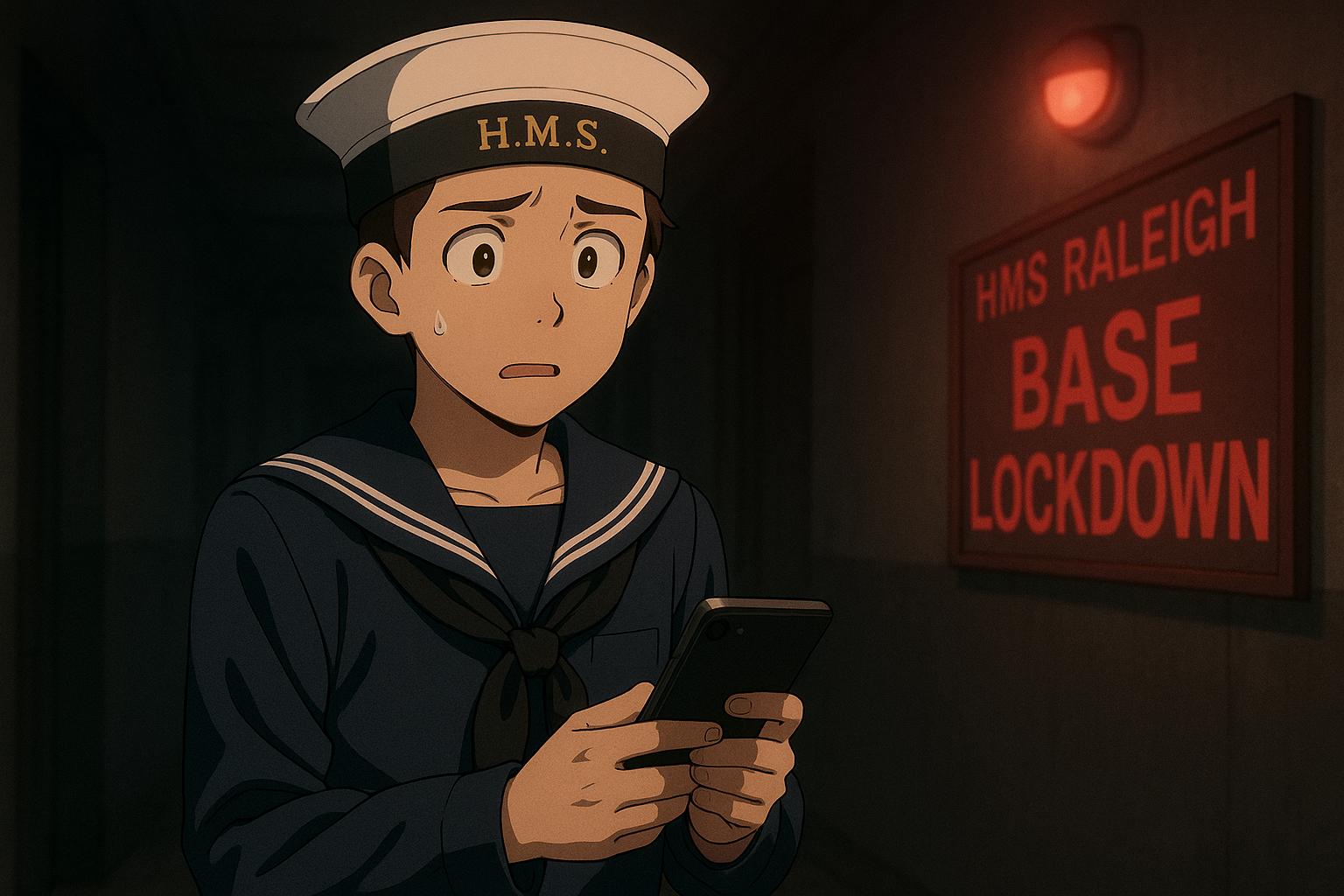The Royal Navy has again found itself embroiled in controversy, this time following a serious incident related to allegations of revenge porn that led to a lockdown at HMS Raleigh, its training base in Torpoint, Cornwall. The situation unfolded when young recruits were abruptly ordered to hand in their mobile phones amid an urgent investigation into the sharing of intimate photographs without consent, a move designed to prevent further dissemination of the material. The lockdown, referred to as the "River City state," restricted communication for hundreds of novices, including some as young as 16, as authorities sought to contain the fallout from what has become a pressing issue not just within this institution, but across various sectors of society.
According to sources familiar with the situation, the incident originated with a young female recruit whose intimate images were disseminated by a former partner who had previously undergone training. Notably, this individual had already left the Navy before the allegations surfaced. The Royal Navy has made clear that only one person is under investigation, asserting that no other recruits are suspected of wrongdoing.
As part of the containment measures, the Navy informed parents of those affected that they would be unavailable for communication for a temporary period due to a police investigation focused on the incident. The Navy emphasised its commitment to maintaining high standards of conduct, reiterating its zero-tolerance policy towards any form of criminal or inappropriate behaviour. A spokesperson stated, "The welfare of our recruits is our number one priority and a restriction on the use of mobile phones was in place for a short time."
In recent months, the Navy has faced scrutiny over multiple high-profile scandals involving personnel who leveraged their military service for explicit online content. Notable among these is the case of Naval Airman Zac Blackman, who was dismissed from his position after it emerged that he was earning approximately £20,000 a month by sharing adult content on the subscription platform OnlyFans while serving aboard HMS Prince of Wales. Despite his subsequent dismissal, Blackman asserted that the publicity garnered by his actions has significantly benefitted him financially, claiming to have become a millionaire and suggesting that being fired was ultimately a fortuitous turn in his career.
Similarly, Lieutenant Claire Jenkins gained notoriety for producing explicit films inside the Faslane nuclear submarine HQ, prompting an investigation that attracted widespread attention. Jenkins, who used the alias Celly Taylor, created content in partnership with a fellow sailor, a venture that reportedly attracted thousands of views. Both cases indicate a troubling trend within the Royal Navy, pointing to broader questions about discipline, accountability, and the impact of modern digital culture.
These incidents highlight the challenges confronting military institutions grappling with the dual pressures of upholding traditional values while navigating the intricacies of a digitally interconnected world. As discussions on consent and appropriate behaviour continue to evolve, the Royal Navy is under scrutiny not only for its internal response to misconduct but also for how it plans to safeguard its reputation in an era increasingly characterised by online visibility and the sharing of personal content.
Moving forward, the Navy must confront these challenges head-on, reinforcing its commitment to a culture that prioritises respect, safety, and accountability among recruits. The focus in the immediate term remains on the ongoing investigation, with hopes that this situation will serve as a catalyst for change within the organisation and lead to more robust measures in addressing inappropriate conduct among personnel.
Reference Map
- Paragraphs 1-3: Source 1
- Paragraphs 4-6: Sources 2, 3, 4, 5
- Paragraphs 7-8: Source 1, 2, 6, 7
- Paragraph 9: Source 1
Source: Noah Wire Services
